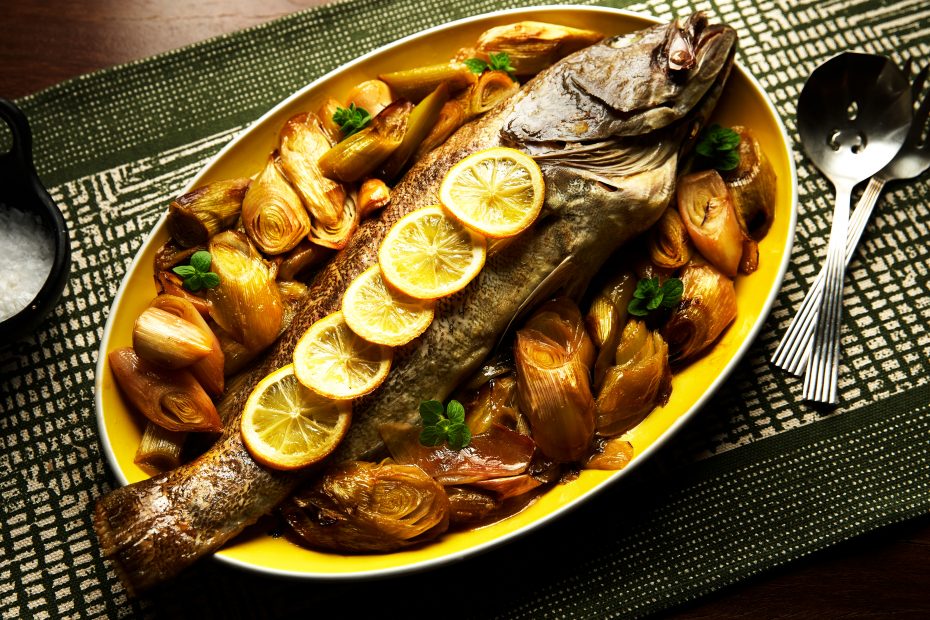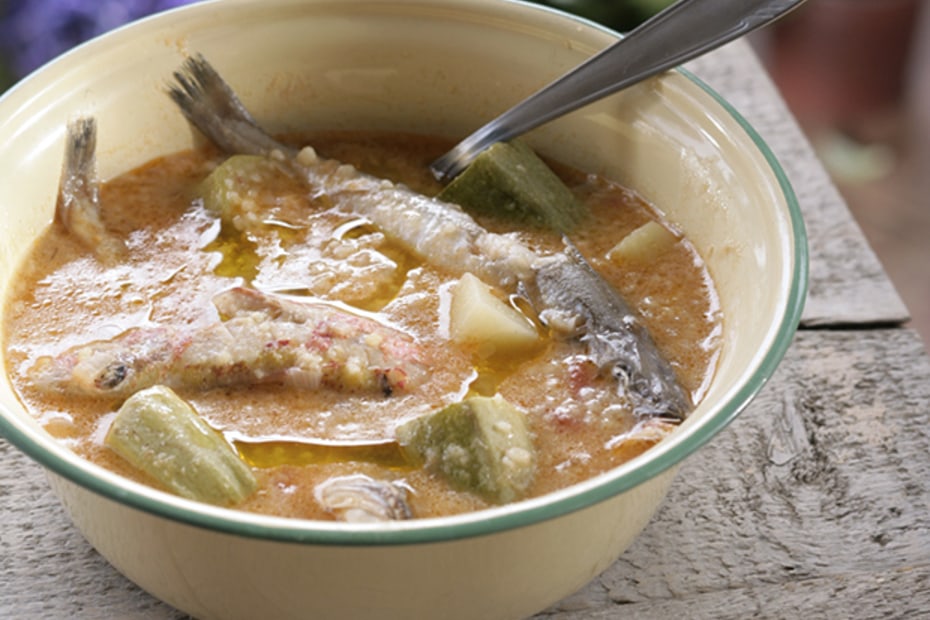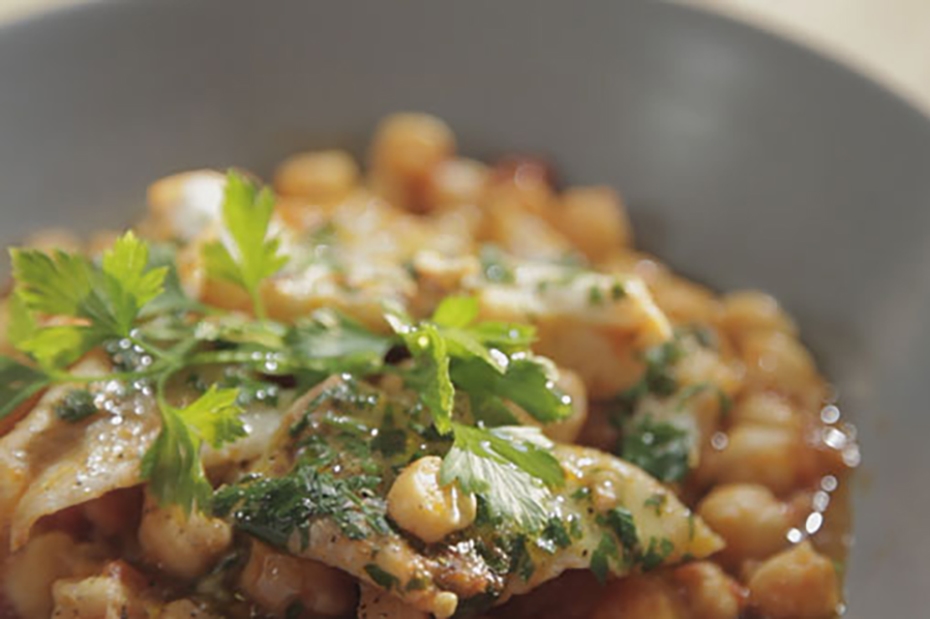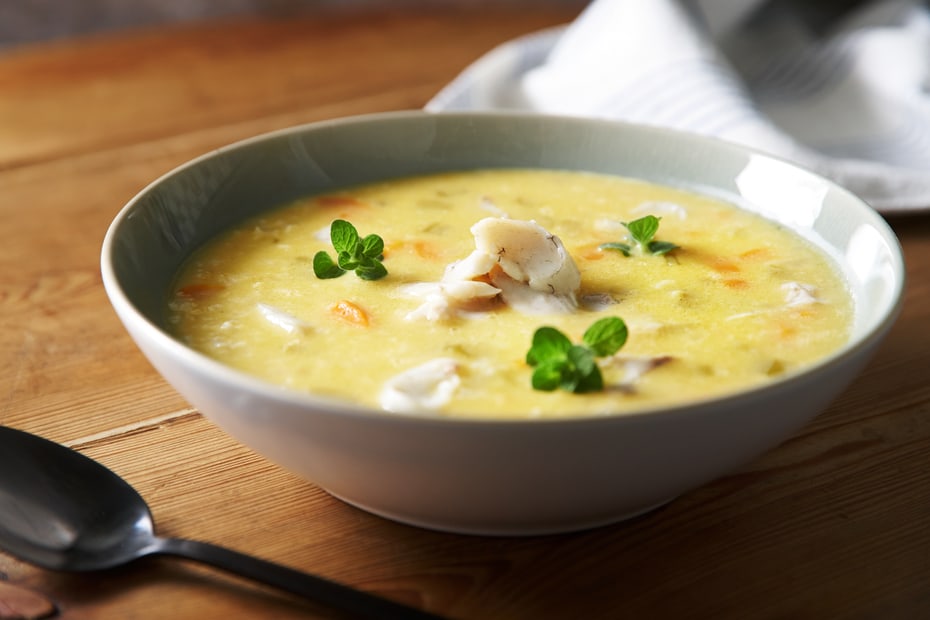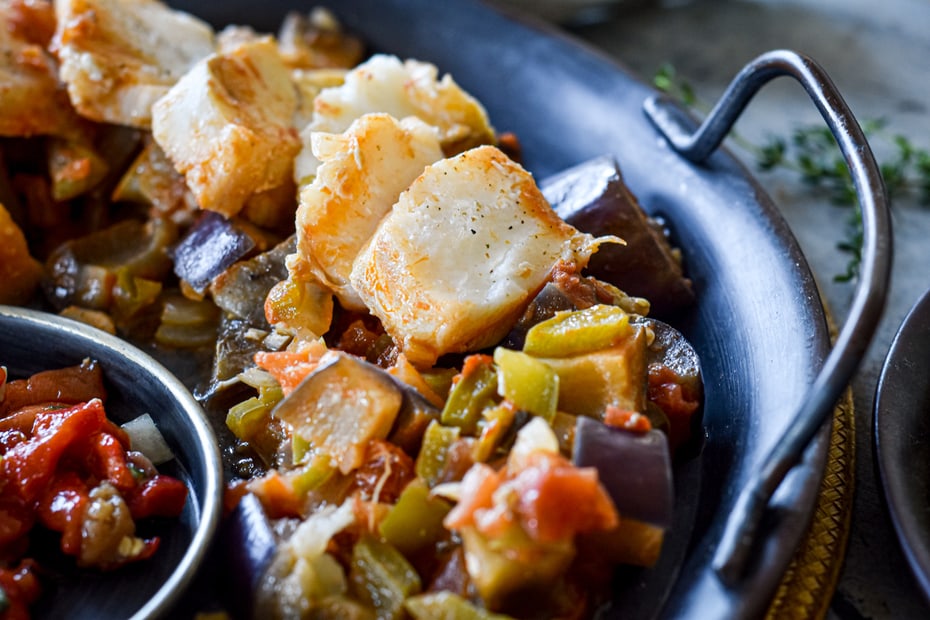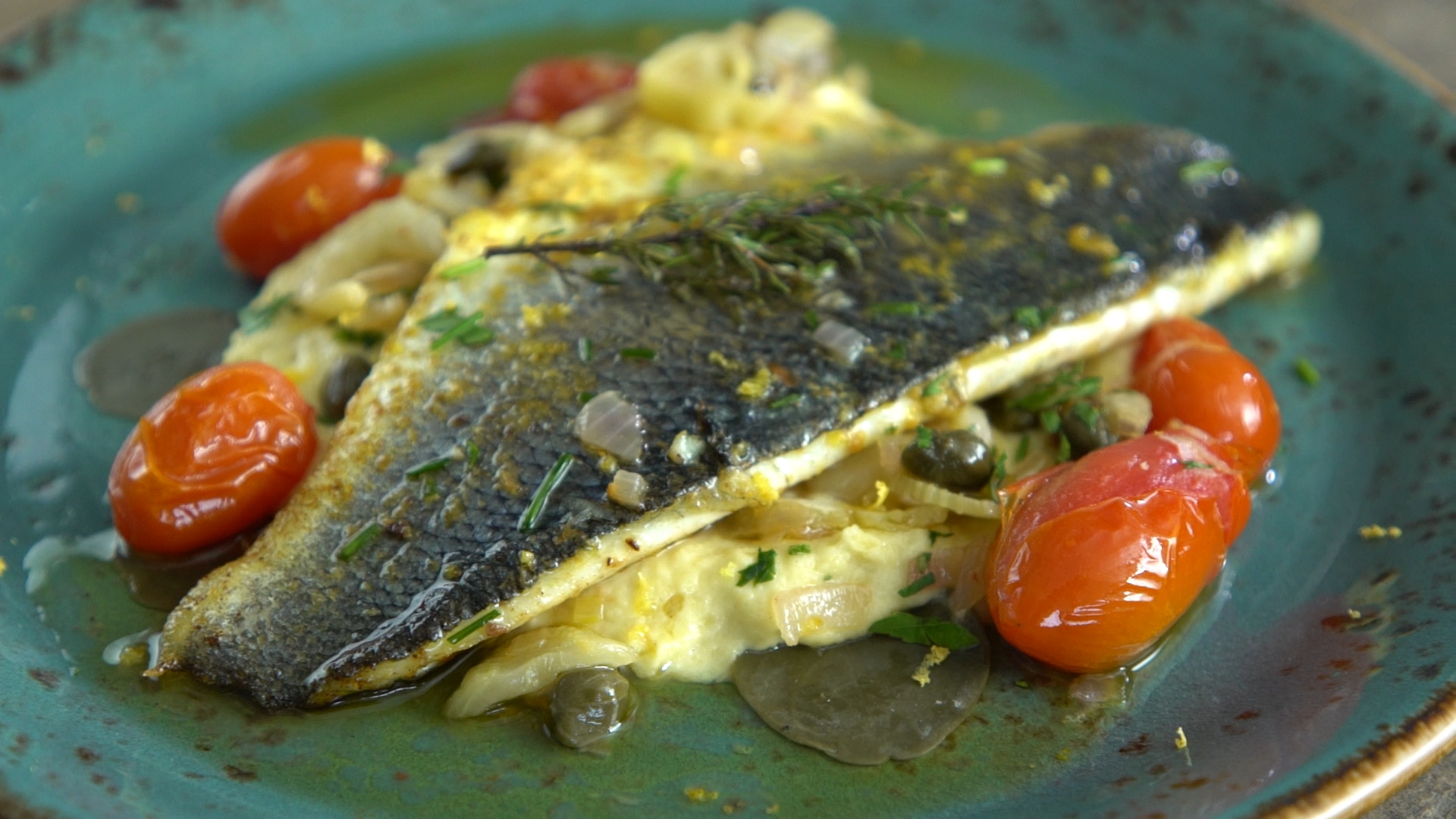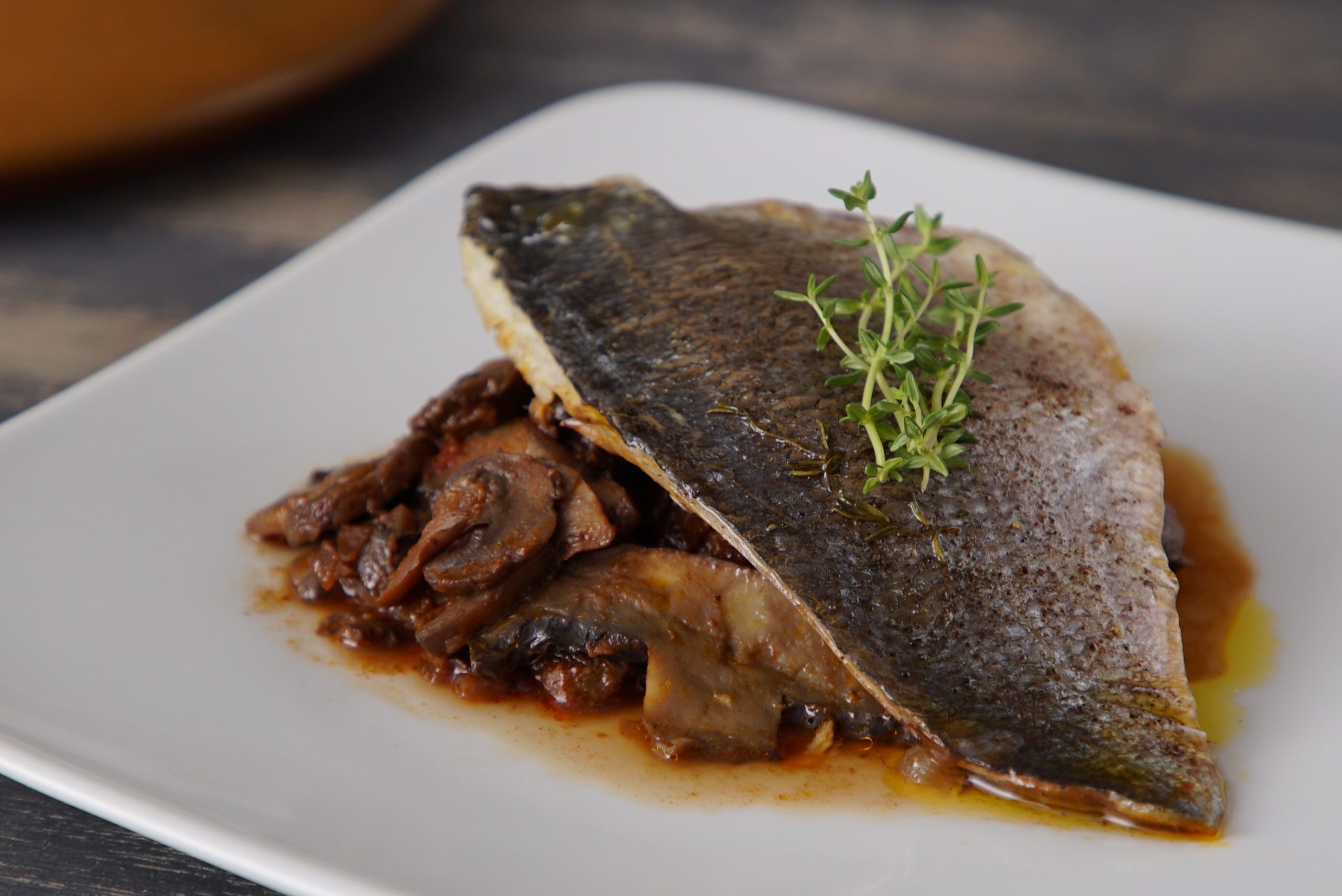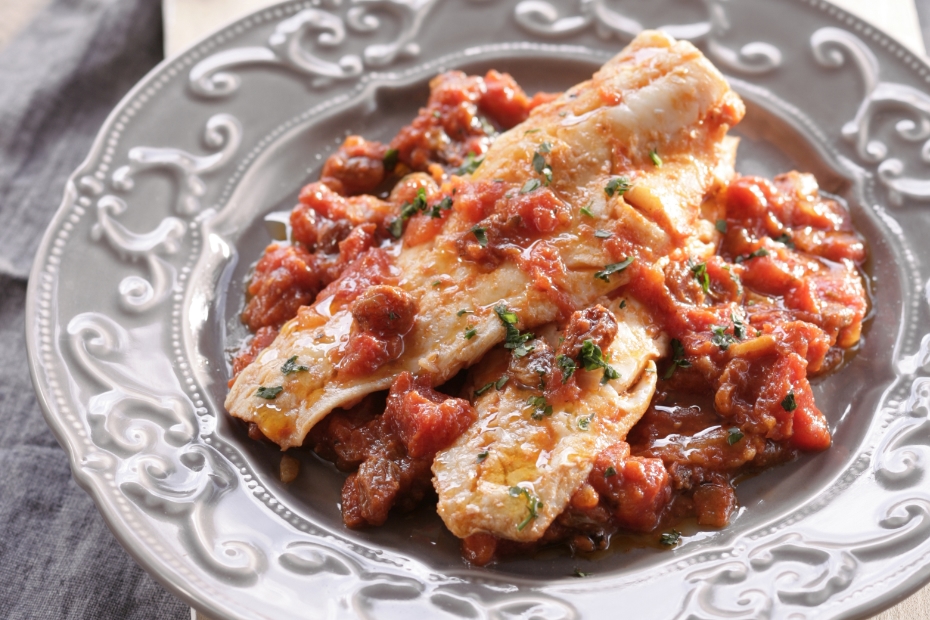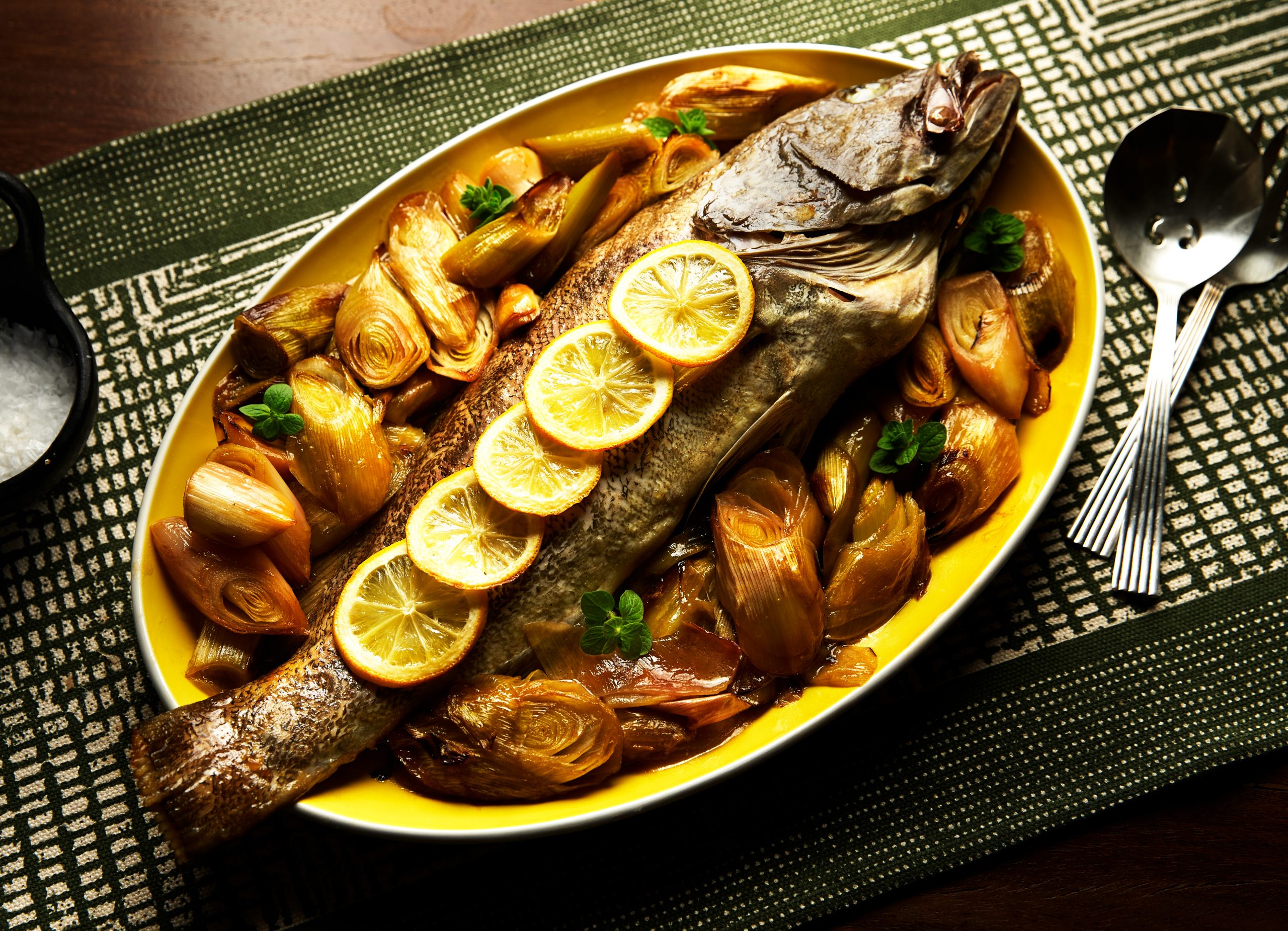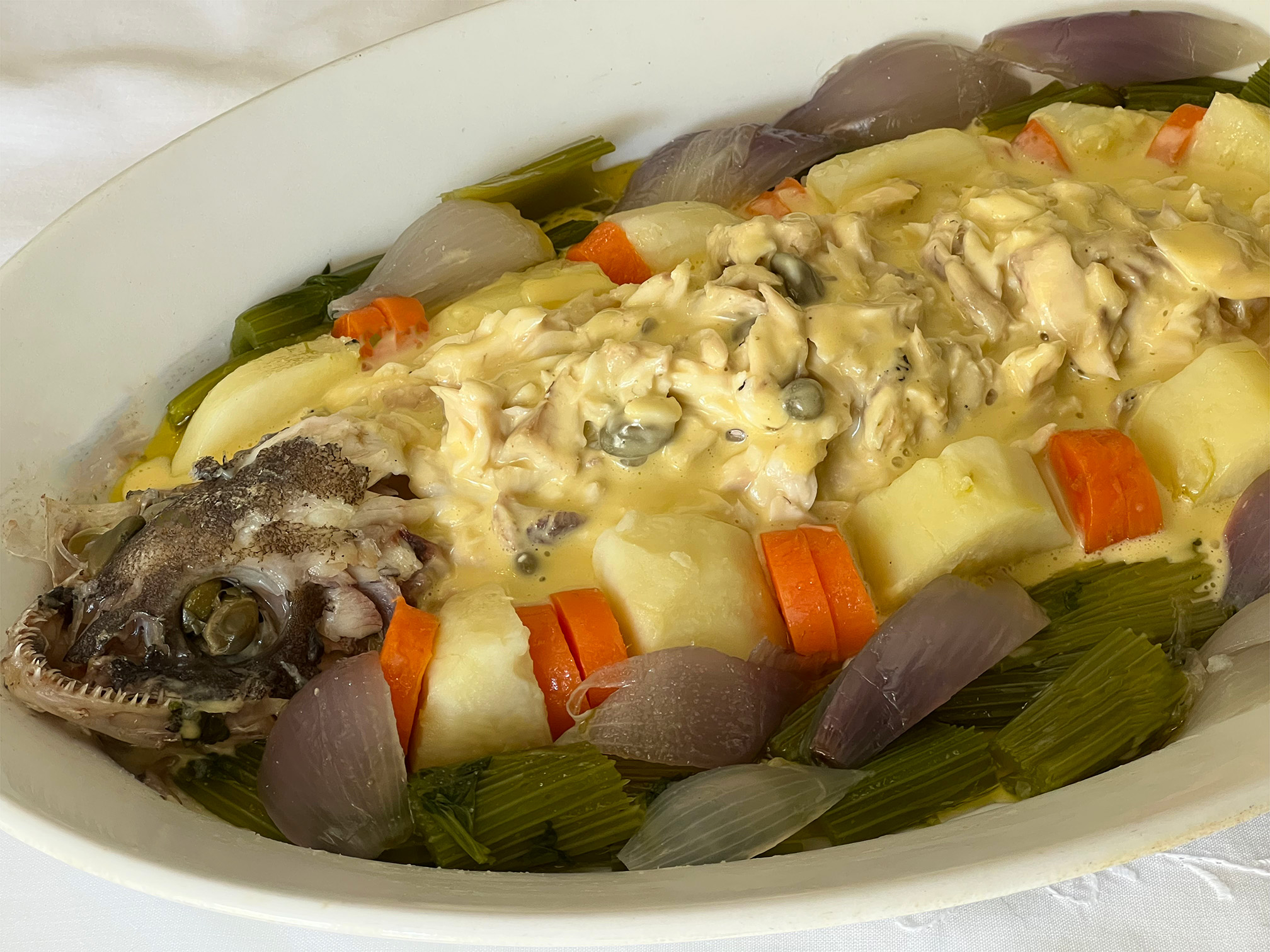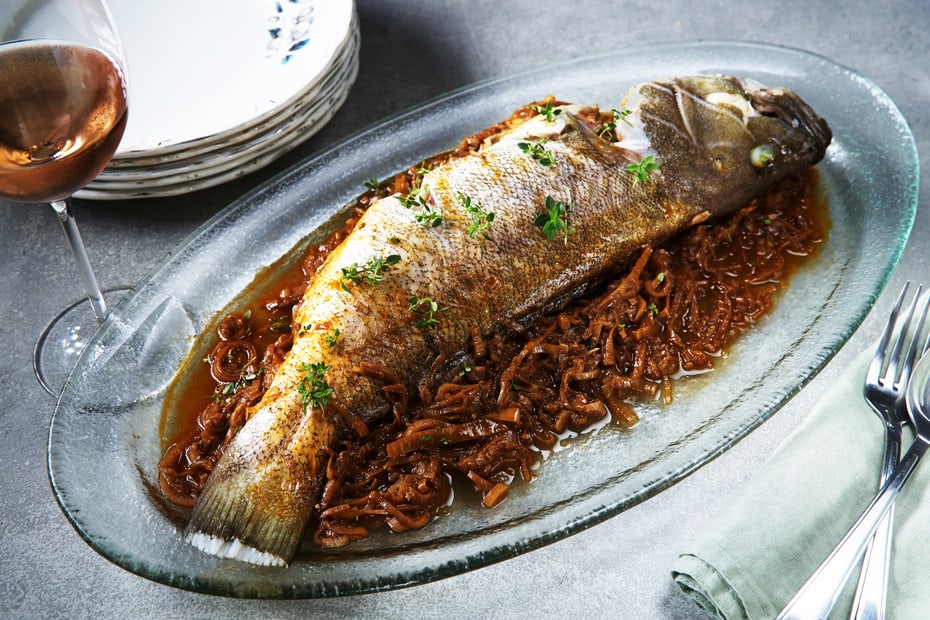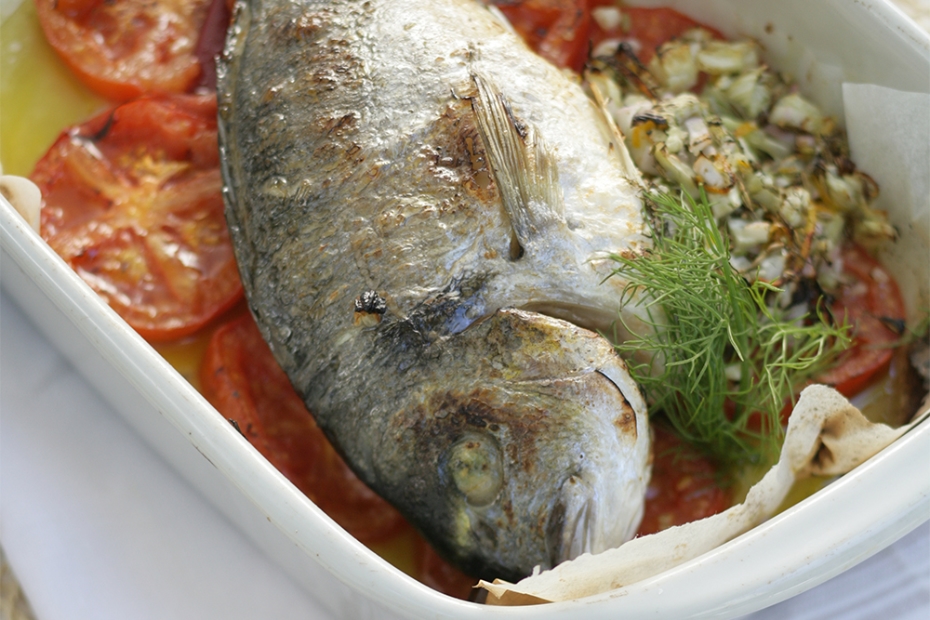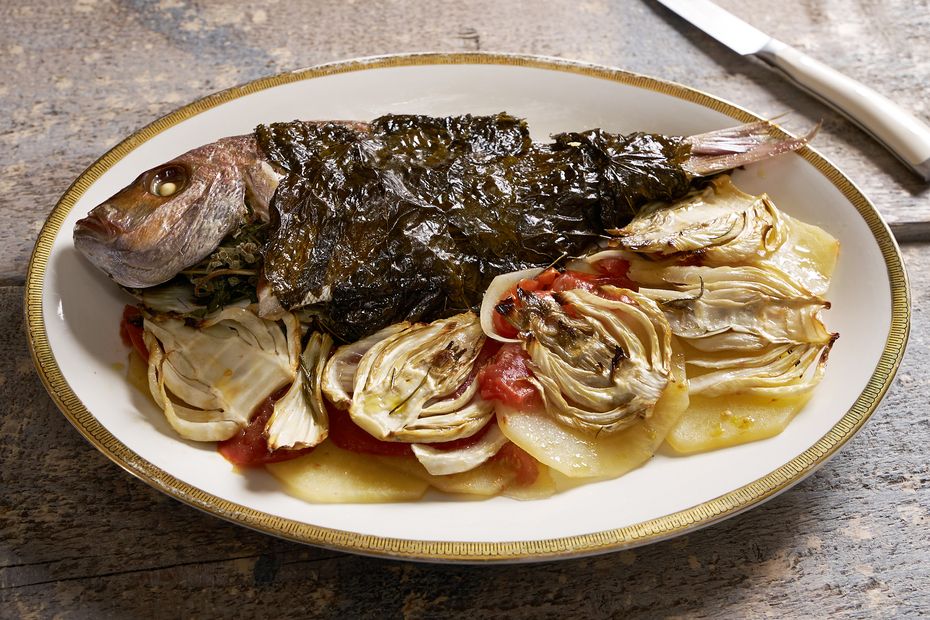In Greece, Easter typically ushers in the first inklings of a summer mood (and, usually, the first whiffs of summer weather), which means that weekends turn into expeditions to search out the best beaches and fish tavernas situated along the coasts. A deep dive into blue waters, followed by a decadent and delicious Greek fish recipe – this is what I look forward to all year round!
Greek seafood aficionados tend to think about fish in a few terms: Beyond differentiating between species, they categorize fish by perceived or inherent quality, and they consider the fish by size and fleshiness to know how to cook it. But ultimately, it’s the sweetness of the flesh which determines which category people consider the fish to be in, a quality that is directly linked to the fish’s own diet and environment. Greek fish dishes conjure up images of the iconic whole grilled fish, a preparation that is certainly popular but far from the only way to approach fish in the Greek kitchen. On my Blue Zone longevity island of Ikaria, there’s a general rule to live by: small fish are fried, and large fish are grilled, baked, or made into soup, especially if they’re gelatinous, i.e. the grouper, which is a local favorite.
Fish recipes are delicious, but there are other reasons to incorporate this ingredient into your cooking. It’s a great source of healthy and lean protein, it is packed with omega-3 fatty acids and vitamins, and it’s rich in zinc, iodine, potassium, calcium, and other important vitamins and minerals.
There has been a lot of discussion in recent years about the sustainability of the fishing industry, particularly following the documentary Seaspiracy. Recent data released by the European Commission indicates that 85% of fish stocks are fished in unsustainable conditions in the Mediterranean, and 64% are overfished to the point of risking collapse in the coming years.
But the good news is that there are ways to consume fish sustainably. Try to understand where your fish comes from, first off. Regardless of whether your fish is wild-caught or farmed, you should look for labels from the Marine Stewardship Council, for instance, which enforces standards that require fisheries to combat overfishing and to consider the environment. You can also do some basic research to see if the fish you’re interested in cooking is overfished.
All this is to say, you shouldn’t cut fish out – just make sure you’re doing it as ethically as possible! Below, find some of my favorite fish recipes from Greece.
Fish Stews and Soups
There are so many wonderful variations on Greek fish stews and soups, and the Cretan-inspired combination of chickpeas and cod is a favorite of mine. The Ikarian Fisherman’s Soup with Trahana comes from my island – it’s a classic, one that I find myself coming back to again and again for the delicious combination of fish and rice, or sometimes trahana.
Then, there’s Psarosoupa – Fish Soup with Avgolemono, a classic that is definitely one of the most comforting ways to serve fish.
And in this recipe for Fresh Cod Fillets Stewed with Eggplants, Peppers and Wine, you’ll find that adding economical, seasonal veggies to an expensive protein (fish) will help stretch it even further.
Fish Fillets
Fillets are simple, easy, and very quick to make. This recipe for Greek Sea Bass Baked with Santorini Assyrtico Wine, Capers Leaves, and Herbs will take you to the Greek islands in summer, even if vicariously!
And Sea Bass with Mushrooms and Xinomavro Red Wine is an excellent quick meal, elegant, easy, but also impressive – the mushrooms really tie the whole dish together!
Salt Cod “Plaki” in a Pot is a great, easy dish for midweek and weekends alike – salt cod is one of the most popular dishes in Greece even though cod is not native to the Aegean.
Whole Fish
I love a gorgeous whole fish recipe. This simple but dramatic Whole Baked Grouper With Leeks is inspired from a traditional recipe for fish from Crete, where vegetables are often cooked with creatures from the sea either in the oven or as stews.
And my Athinaiki Mayioneza (Poached Fish With Homemade Mayo) happens to be one of the classics of “bourgeois” Greek cooking, and something Athenian ladies of a certain generation made for special occasions.
Another cool regional variation? Bourtheto, from the Italian brodetto, for broth or soup, is one of the classic recipes coopted from the Venetian past of Corfu and Ionian islands.
You can try a Gilthead bream, tsipoura, which is one of the great fish of the Aegean and also one of the most popular and important Greek farmed fish.
And this Fish Wrapped in Grape Leaves truly encapsulates the whole spirit of the Aegean!
